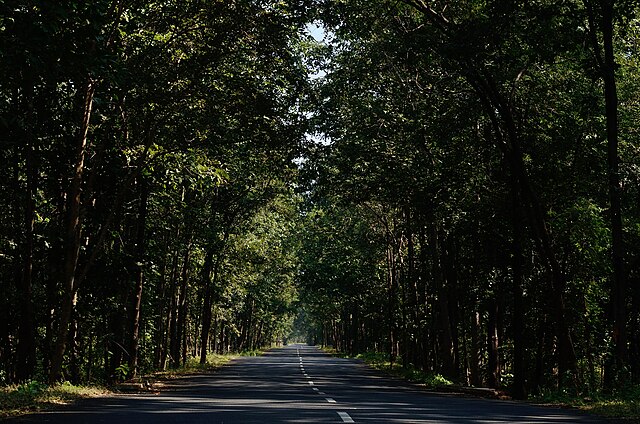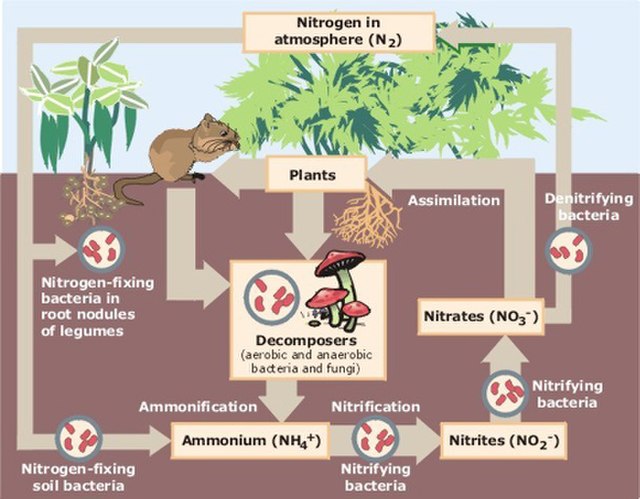Ecosystem services are the various benefits that humans derive from healthy ecosystems. These ecosystems, when functioning well, offer such things as provision of food, natural pollination of crops, clean air and water, decomposition of wastes, or flood control. Ecosystem services are grouped into four broad categories of services. There are provisioning services, such as the production of food and water. Regulating services, such as the control of climate and disease. Supporting services, such as nutrient cycles and oxygen production. And finally there are cultural services, such as spiritual and recreational benefits. Evaluations of ecosystem services may include assigning an economic value to them.
An example of an ecosystem service is pollination, here by a honey bee on avocado crop.
Detritivores like this dung beetle help to turn animal wastes into organic material that can be reused by primary producers.
Social forestry in Andhra Pradesh, India, providing fuel, soil protection, shade, and even well-being to travelers.
Upland bog in Wales, forming the official source of the River Severn. Healthy bogs sequester carbon, hold back water thereby reducing flood risk, and supply cleaned water better than degraded habitats do.
An ecosystem is a system that environments and their organisms form through their interaction. The biotic and abiotic components are linked together through nutrient cycles and energy flows.
Flora of Baja California desert, Cataviña region, Mexico
Global oceanic and terrestrial phototroph abundance, from September 1997 to August 2000. As an estimate of autotroph biomass, it is only a rough indicator of primary production potential and not an actual estimate of it.
A freshwater lake in Gran Canaria, an island of the Canary Islands. Clear boundaries make lakes convenient to study using an ecosystem approach.
Biological nitrogen cycling








